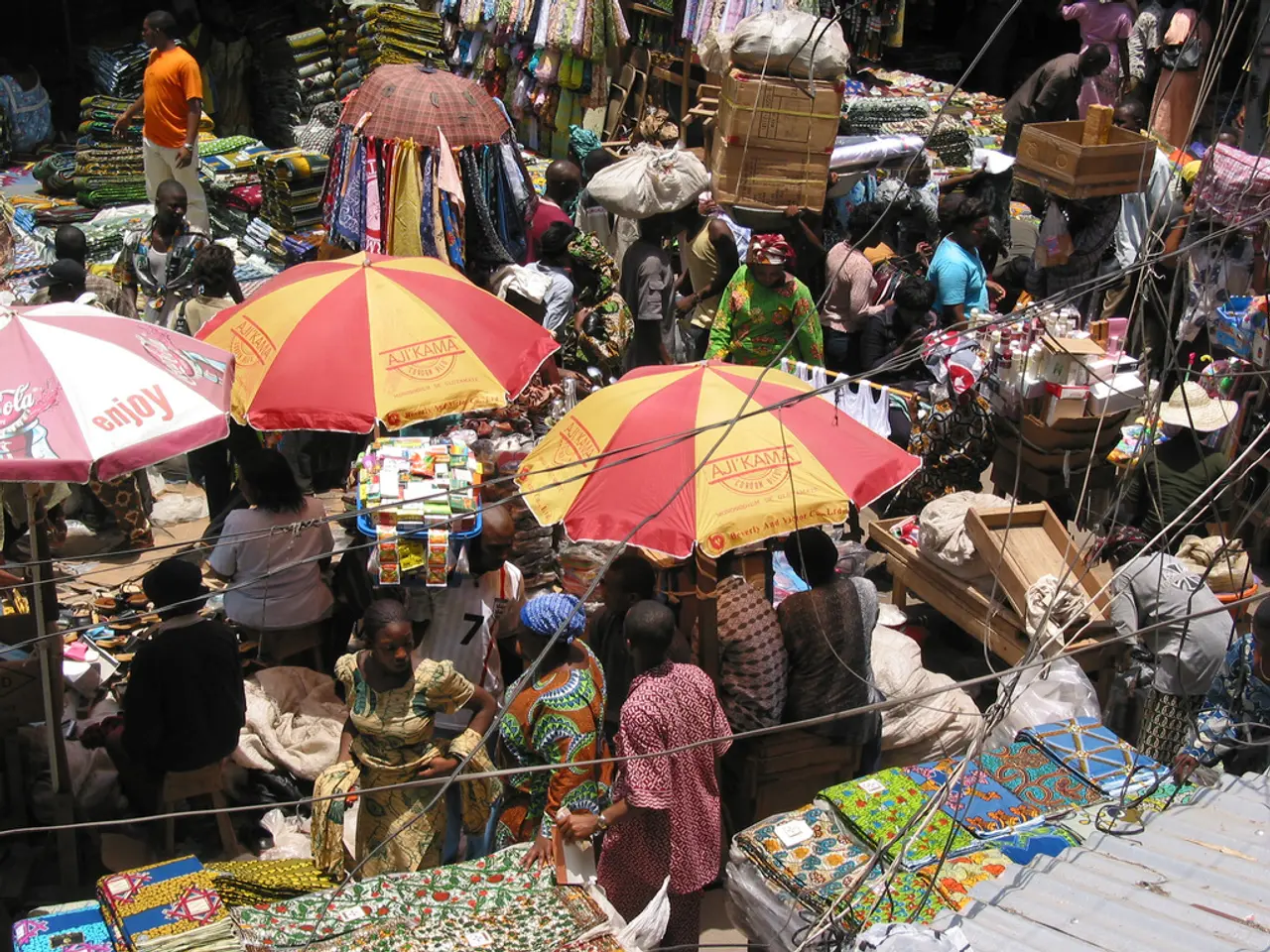In the ranking of job opportunities, Zabaykalye ranks high, yet lags behind in salary offerings.
=====================================================================
In the vast and remote region of Zabaykalsky Krai, sales jobs are in high demand, but the salaries offered are significantly lower than in other Far Eastern regions. According to data from hh.ru, the Zabaykalsky Krai ranked among the outsiders in terms of salary levels for sales specialists.
Despite the high demand, with up to 10 vacancies per unemployed person in some regions, the employment challenges persist. The region is experiencing a severe labor shortage, particularly among the working-age population, due to demographic decline. By 2030, Russia is expected to lose 7.2 million workers nationwide, with this trend likely more pronounced in remote regions like Zabaykalsky Krai.
The high vacancy-to-unemployed ratio suggests difficulty in attracting and retaining workers at the offered wages, especially in less economically developed or remote areas like Zabaykalsky Krai. The low salary levels may be attributable to weaker local economies, lower purchasing power, and limited industrial or commercial development.
Moreover, migration policy and labor supply constraints play a significant role in the region's labor market. Tightening regulations on migrant workers and restrictions in certain regions affect the available labor pools. While the government is increasing quotas for foreign specialists, the influx covers only a fraction of labor demand, contributing to persistent shortages and wage suppression in some sectors and localities.
Job seekers in the Zabaykalsky Krai on average expect around 45,000 rubles for sales positions. However, the median salary for sales vacancies in the region is 49,300 rubles, significantly lower than in the Magadan Oblast (78,300 rubles) and the Kamchatka Krai (76,800 rubles).
In terms of the number of open vacancies for salespeople, the Zabaykalsky Krai trails only Primorye and the Khabarovsk Krai. The Primorsky Krai had the highest demand for sales consultants and cashiers, accounting for 27% of all vacancies, followed by the Khabarovsk Krai with 25%. The Zabaykalsky Krai accounted for 9% of the vacancies for sales consultants and cashiers in the Far East.
In the first half of 2025, 13,000 vacancies for sales consultants and cashiers were opened in the Far East. Despite the high demand and low salaries, the region faces a serious shortage of personnel, with only 1.6 resumes per sales vacancy on average.
In conclusion, the high demand for retail jobs in Zabaykalsky Krai is primarily driven by labor deficits, but the region cannot raise salaries to competitive levels because of demographic decline, economic limitations, and partial reliance on restricted migrant labor. This mismatch between jobs available and wages offered compared to other Far Eastern regions with relatively stronger economies or better migration conditions is a challenge that the region must address to attract and retain workers in the sales sector.
[1] [Source] [3] [Source]
- Despite the high demand for business opportunities in Zabaykalsky Krai, the lower salaries in the finance sector might deter potential investors, as it could affect the availability of skilled labor to run and grow their businesses.
- Consequently, to stimulate business growth and attract more investors to Zabaykalsky Krai, it may be necessary to address the Finance industry's salary issue and offer competitive remuneration to attract and retain skilled professionals, fostering a more robust and vibrant local economy.




